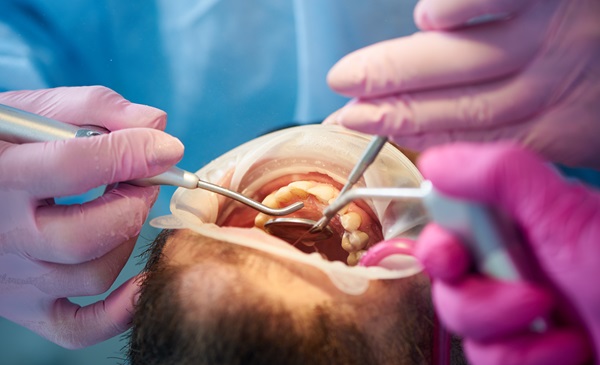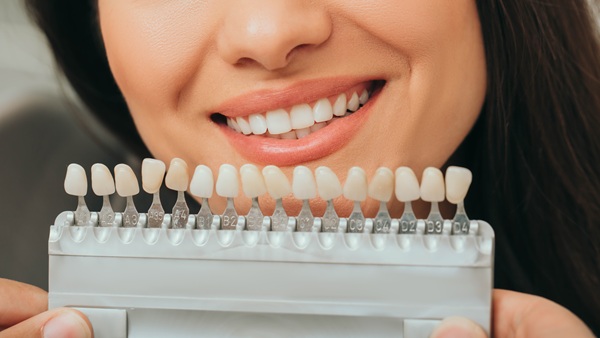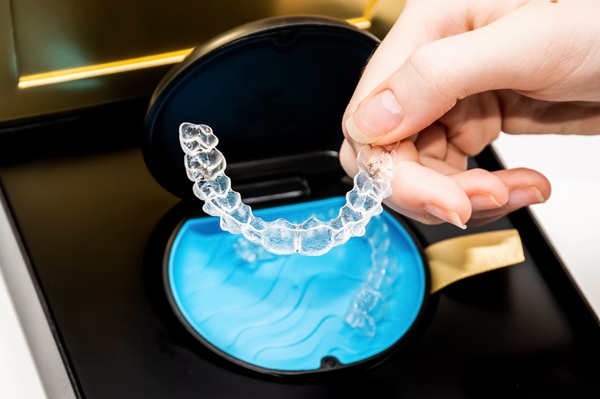For most adults, it’s normal to have to have at least one or two wisdom teeth extracted throughout their life. Unlike our permanent teeth, which grow into our mouth fully during our formative years, wisdom teeth are molars that grow during our adulthood.
However, in our generation today, our wisdom teeth may no longer be needed in the same way our ancestors needed them to bite and grind their food. Now, it often only presents discomfort instead of convenience, as some wisdom teeth can be painful as they grow. They might even hit and damage our permanent teeth while still in the process of erupting to the surface.
Because of this, dental practitioners often recommend wisdom teeth extraction before they can cause any harm to your oral health.
However, how do you deal with life after wisdom teeth extraction?
Here are some of our recovery tips that can help you get back on your feet post-surgery!
Recovering From a Wisdom Teeth Extraction
Follow Post-Operative Instructions
Right after your surgery, your dentist will provide specific instructions tailored to your situation. With Bellevue Hill Dental, we will even give you written directions to make sure you don’t forget anything. Make sure to follow them diligently. Dentist’s instructions may include guidelines on eating, drinking, and oral hygiene. These instructions can help you prevent complications like getting a dry socket, which occurs when the blood clot at the extraction site dislodges.
Manage Pain and Swelling
Pain and swelling are common after wisdom teeth extraction. Manage discomfort using these methods:
Use ice packs
Apply ice packs to the affected area for 15-20 minutes at a time during the first 24 hours to reduce swelling.
Take prescribed medications
Follow your dentist’s recommendations regarding pain relievers and anti-inflammatory medications.
Rest
Give your body time to heal by avoiding strenuous activities for a few days.
Maintain Oral Hygiene
Good oral hygiene is still essential even after your surgery, but you make sure to be gentle around the extraction sites to avoid complications. Try doing these tips to be on top of your oral hygiene:
Rinse with salt water
After the first 24 hours, rinse your mouth with a saltwater solution (1/2 teaspoon of salt in 8 ounces of warm water) several times a day to reduce bacteria and promote healing.
Brush carefully
Use a soft-bristled toothbrush to clean your teeth, and remember to be cautious around the extraction areas. Avoid brushing directly over the extraction sites for the first few days.
Choose the Right Foods
Your diet also plays a significant role in your recovery. Since your extraction site is still fresh and trying to recover, try:
Soft food
Stick to soft foods like yoghurt, applesauce, mashed potatoes, and smoothies for the first few days.
Avoid certain foods
Steer clear of hot, spicy, acidic, crunchy, and chewy foods that can irritate the extraction sites or dislodge the blood clot.
Stay hydrated
Drink plenty of fluids, but avoid using straws as the sucking motion can disturb the healing process.
Avoid Tobacco and Alcohol
Tobacco and alcohol can slow down your healing process and increase the risk of complications:
Quit smoking
Smoking can delay healing and increase the risk of dry sockets and infection.
Limit alcohol consumption: Alcohol can interfere with medications and slow down recovery.
Monitor Your Recovery
Keep an eye on your progress and watch for any signs of complications:
Persistent pain or swelling
Some discomfort is normal, but if pain or swelling worsens after a few days, it’s best to contact your dentist.
Signs of infection
Symptoms such as fever, pus, or a foul taste in your mouth indicate an infection that requires immediate dental attention.
Dry socket
Severe pain a few days after extraction, often accompanied by an unpleasant odour, may signal a dry socket. Seek immediate dental care if you suspect this condition.
Attend Follow-Up Appointments
Your dentist will schedule follow-up appointments to monitor your healing. These visits are crucial to ensure everything is progressing according to what is expected:
Suture removal
If you have non-dissolvable stitches, your dentist will remove them during a follow-up visit.
Check for complications
Regular check-ups allow your dentist to identify and address any potential issues early.
Gradually Resume Normal Activities
As you begin to feel better, you can slowly return to your normal routine:
Exercise caution
Start with light activities and gradually increase your activity level as your comfort allows.
Listen to your body
Pay attention to how you feel and avoid pushing yourself too hard, too soon.
Find A Partner Who is Committed to Your Oral Health
Being able to go in for a wisdom teeth extraction helps in making sure your oral health is taken care of.
Remember, it’s a normal process that most adults go through, and it is important to take the necessary steps to heal and recover properly. Doing these can help you avoid further issues in your oral health and keep your smile healthy for a long time.
Luckily, with a trusted partner, taking care of your oral health has become easier. With this, Bellevue Hill Dental can provide a smooth journey to ensure you get a healthier and brighter smile!
Talk to our professionals for expert advice about our wisdom teeth extraction services and other dental services you might need. Book a consultation now or call our line at (02) 9158 1530.



